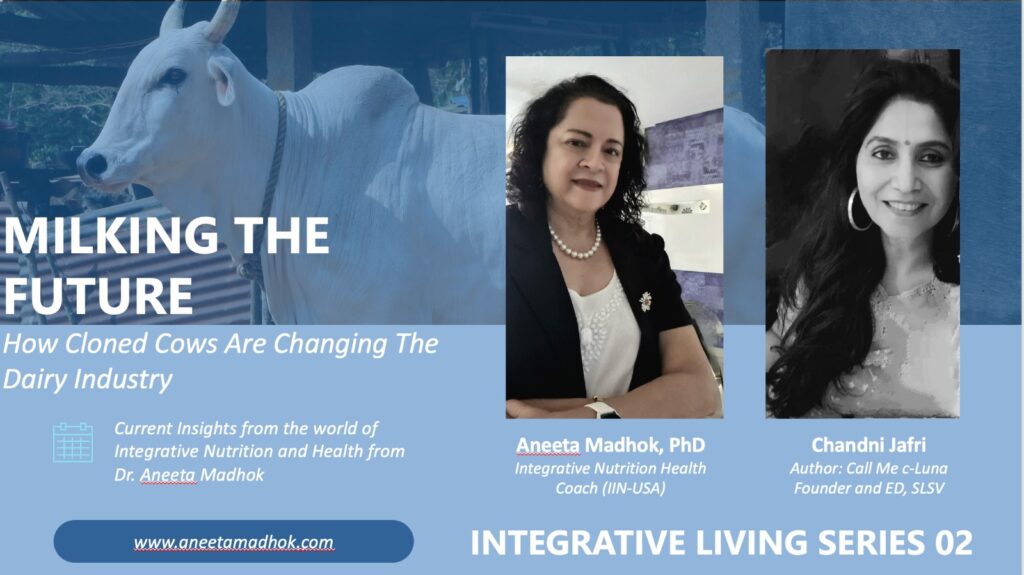In this series, Dr. Aneeta Madhok presents many points of view and cutting-edge research on Integrative Nutrition and Health, often in dialogue with subject matter experts who are intensely passionate about their work and bring a variety of insights into aspects of lifestyle and health to the world at large. Milk, often referred to as “nature’s perfect food,” has nourished and sustained humankind for generations. Its nutritional value, versatility, and cultural significance are unparalleled. However, the dairy industry faces numerous challenges today. From increasing global demand for dairy products to concerns about environmental sustainability and animal welfare, the need for innovative solutions is more pressing than ever before.
Enter the world of cloned milk. Cloning, once the realm of science fiction, has now become a reality in agriculture, offering a potential game-changer for the dairy industry. By harnessing the power of biotechnology, scientists have embarked on a journey to create cows that can produce milk in huge quantities by cloning cows that are genetically engineered to produce milk with higher yields, through selective breeding and genetic modification. However, this emerging industry is not without a lot of hazards.
Critics argue that the cloning process itself raises animal welfare issues, as it can result in a high rate of deformities and health problems in cloned animals as well as high mortality rates (almost 90% according to one study). There are also concerns about the potential long-term health effects of consuming cloned milk and the ethical considerations of manipulating animal genetics for human benefit.
The process of mass-producing cloned cows will also result in limiting the genetic diversity of cows within the livestock population. Differences in the composition of meat and milk from cloned cows, raise health and food safety concerns in the long run. 64% of Americans in one research are reluctant to consume cloned meat and milk products, while the FDA has approved of these. Regulatory considerations are also raised with Europe placing a ban on cloned cows, and countries like our own India, and several Asian countries, have yet to take a conclusive stand on the issue while simultaneously jumping on the bandwagon of cloning cows and other animals in the name of scientific progress and research.
Earlier this year, the first-ever cloned Gir cow Ganga was produced in India and when she grows up, she is probably going to produce 15 liters of A2 milk daily. While the scientific breakthrough has enormous implications, we need to move forward with this trend in a considered manner considering all the pros and cons.
In keeping with the times, inspired by real-life developments in cloning and genetic engineering, CHANDNI JAFRI, has authored a novel that is as thrilling as a script from a Tom Cruise movie, complete with drama and dialogues in a story like that is so fast-paced, it will leave you breathless. The book titled “Call Me C-Luna” is now available on Amazon and Flipkart. In my conversation with Chandni Jafri, I explore the universe of cloned milk and the future of the dairy industry.
